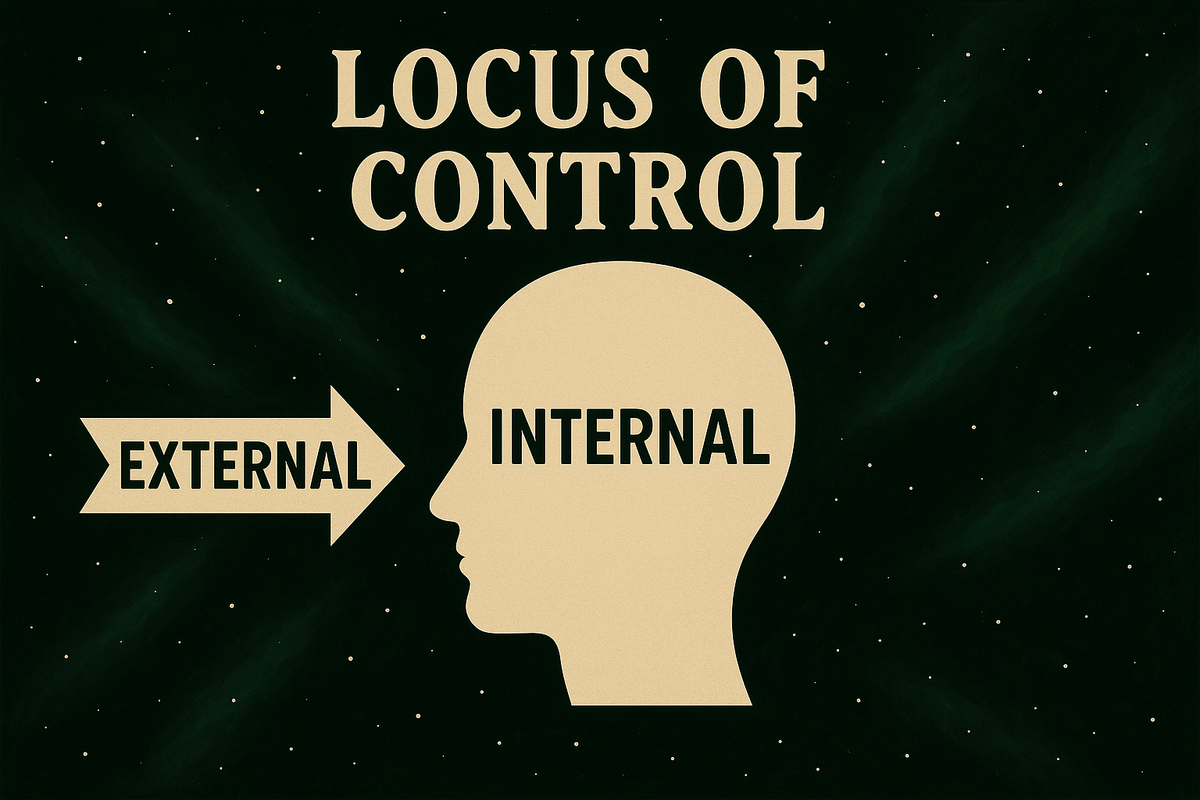Locus of Control

Your locus of control is your default belief about one key question:
Do I control my life—or is life just happening to me?
Psychologist Julian Rotter introduced the concept in the 1950s. Since then, decades of research confirm this mindset shapes outcomes across:
- Health – Internals engage more in preventive behaviours and report better overall health.
- Income – They tend to earn more and stay employed longer, even after controlling for education.
- Job performance – A 2006 meta-analysis (Ng et al.) found moderate correlations with job performance (ρ = .18), satisfaction (ρ = .26), and career success.
- Resilience – Internals bounce back faster from trauma and life setbacks.
- Mental health – They’re less prone to anxiety and depression.
- Even longevity – Some large cohort studies suggest internals live longer, largely due to better health habits.
Here’s the pattern:
- Internal locus = “What can I do to fix this?” → ownership → action → growth.
- External locus = “Why does this always happen to me?” → blame → helplessness → stagnation.
The good news? It’s not fixed.
You can train a more internal locus. Tools like journaling, CBT, Stoic philosophy, and regular reflection all build agency. You stop outsourcing responsibility and start acting from authorship.
Important: internal doesn’t mean denial. It’s not pretending luck or injustice don’t exist. It means focusing on what’s in your control, especially when things are hard.
In business:
Founders with an internal locus adapt quickly, own mistakes, and improve. Externals stay stuck blaming the market, the board, or bad timing.
In life:
Internals ask, “What’s the next best move I can make?”
Externals shrug: “That’s just how things are.”
A quick gut-check:
When something fails, is your first thought:
→ “What did I miss?” (internal)
or
→ “Why does this always happen to me?” (external)?
Bottom line:
Your locus of control isn’t just a mindset—it’s a master key. Shift it, and almost everything else starts to shift too.
